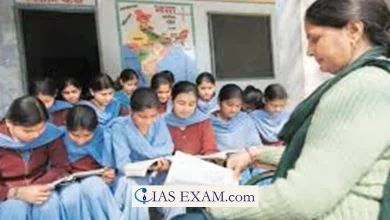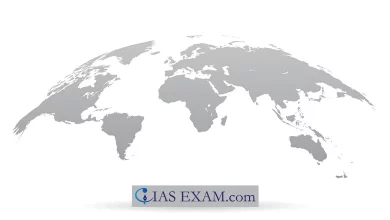The Misinterpretation of the Anti-Defection Law
[GS Paper 2 – Indian Polity, Recent Judgements]
The High Court of Bombay at Goa in its judgment, delivered on February 25, held that the former members of the Congress Legislature Party (CLP) in the Goa assembly who had defected to the BJP are exempt from disqualification under paragraph 4(2) of the Constitution’s Tenth Schedule, referred to commonly as the anti-defection law. Ten of the 15 MLAs of the CLP in the Goa Assembly — two-thirds of the party’s strength in the House — had joined the BJP.
The court said that under sub-paragraph (2) of paragraph (4), the merger of this group of Congress MLAs with the BJP is deemed to be a merger of the original political party (Indian National Congress) with the BJP. Therefore, these members are protected under paragraph (4).
What is Anti-Defection Law?
The Tenth Schedule – popularly known as the Anti-Defection Act – was included in the Constitution via the 52nd Amendment Act, 1985 and sets the provisions for disqualification of elected members on the grounds of defection to another political party. The anti-defection law punishes individual Members of Parliament (MPs)/MLAs for leaving one party for another.
However, it allows a group of MP/MLAs to join (i.e. merge with) another political party without inviting the penalty for defection. And it does not penalize political parties for encouraging or accepting defecting legislators.
Grounds of Disqualification:
- If an elected member voluntarily gives up his membership of a political party.
- If he votes or abstains from voting in such House contrary to any direction issued by his political party or anyone authorized to do so, without obtaining prior permission.
- As a pre-condition for his disqualification, his abstention from voting should not be condoned by his party or the authorized person within 15 days of such incident.
- If any independently elected member joins any political party.
- If any nominated member joins any political party after the expiry of six months.
Paragraph (4) of ADL:
Paragraph (4) of the Tenth Schedule exempts defectors from disqualification if their original political party merges with another party and two-thirds of the members of that party in the legislature agree with the merger.
Paragraph (4) is an exception to the Tenth Schedule’s main provisions. It operates only when the defectors’ original political party has merged with the party to which they have defected and two-thirds of the members of the legislature belonging to that party have agreed to the merger. Under this provision, the merger of the original political party has to take place first, followed by two-thirds of the MLAs agreeing to that merger.
The court’s view — the merger of the 10 MLAs of the CLP with the BJP should be regarded as the Congress itself merging with the BJP — goes against the letter and spirit of the Tenth Schedule, paragraph (4) in particular.
Way Forward
The anti-defection law was designed to eliminate political defection. However, the judgment of the Bombay HC seems to assume that paragraph (4) of the 10th schedule is meant to facilitate defection. This judgment is likely to open the flood gates to defection. The Supreme Court must intervene quickly.





.png)



